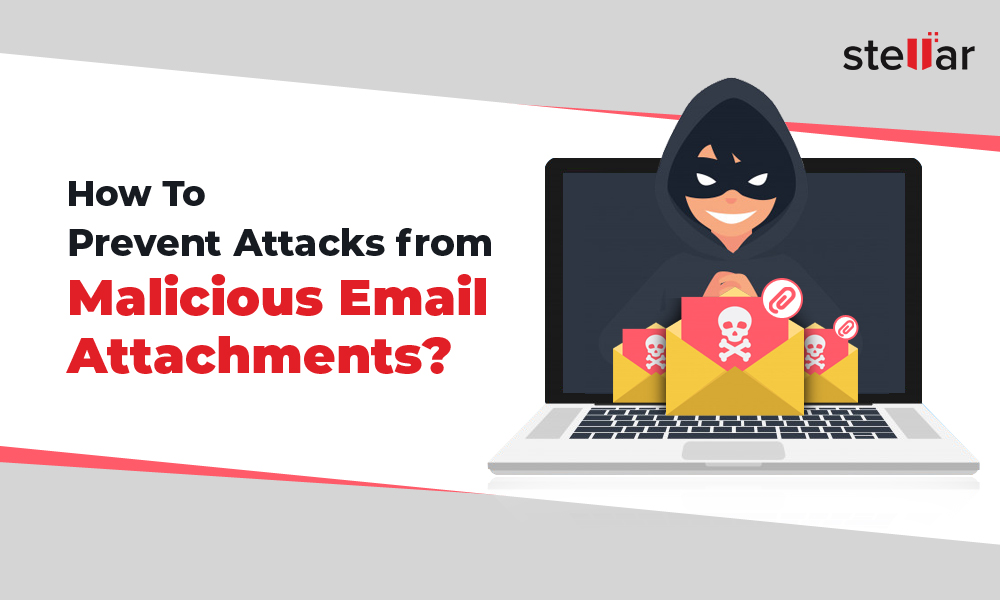How do you keep your computer safe from malicious content such as unsafe files and harmful processes?
n action=”0″ background_color=”#e0f3ff” padding_right=”30″ padding_left=”30″ border_radius=”30″] How do you keep your computer safe from malicious content such as unsafe files and harmful processes?
One of the ways to keep your computer safe from malicious content is to use antivirus software and keep it up to date. This will help detect and remove any harmful files or processes that can harm your computer. Additionally, it is important to be cautious when downloading files or clicking on unknown links. Avoid opening suspicious attachments and make sure to browse the internet safely. Regularly updating your computer and software also ensures that you have the latest security patches to protect against any potential threats. Encrypting your files and using strong passwords add an extra layer of security. It is also crucial to use a firewall and stay away from pirated material. By following these best practices, you can keep your computer safe from malicious content.
[/wpremark]
1. How can you keep your computer safe from malicious attachments?
One way to keep your computer safe from malicious attachments is to use a firewall. It is also important to keep all software up to date and use antivirus software, ensuring it is current. Additionally, make sure your passwords are well-chosen and protected. Avoid opening suspicious attachments or clicking unusual links in messages. Browse the web safely and stay away from pirated material.
2. How can we keep our computer safe from viruses and cybercrime?
To keep your computer safe from viruses and cybercrime, it is important to use antivirus software and keep it updated. This protection helps prevent and detect viruses and other types of malware, providing peace of mind. Keeping your antivirus software updated ensures you have the best level of protection.
3. What are the best practices for preventing malicious software on a computer?
There are several best practices for preventing malicious software on a computer. Firstly, keep your computer and software updated. Using a non-administrator account whenever possible is advised. Think twice before clicking on links or downloading anything. Be cautious when opening email attachments or images. Do not trust pop-up windows that ask you to download software. Limit your file-sharing.
4. Which of the following is used to protect a computer from malicious software that can harm computer memory or files?
Antivirus software is used to protect a computer from malicious software that can harm computer memory or files. It is a security program designed to prevent, detect, search, and remove viruses and other types of malware from computers, networks, and other devices.
5. What is the safest way to secure files?
Encrypting a file is the safest way to secure it. Encryption makes the file unreadable until it is decrypted with the encryption key. Only those with the encryption key can access the file, ensuring data safety even if it falls into the wrong hands.
6. How can I keep my files safe?
Here are 10 essential tips and best practices to keep your files safe on your PC and in the cloud: 1. Keep your computer and devices updated. 2. Create a strong password. 3. Use Microsoft Defender. 4. Encrypt your hard drive. 5. Encrypt your mobile device. 6. Add security information to your cloud storage account. 7. Choose a cloud service that uses encryption.
7. What are three methods to protect computer data from cyber threats?
Three methods to protect computer data from cyber threats are: 1. Turn on Multifactor Authentication. 2. Update your software regularly. 3. Think before you click. Use strong passwords.
8. What keeps the computer safe from harmful viruses?
To keep the computer safe from harmful viruses, it is recommended to use antivirus protection and a firewall. Installing antispyware software and keeping antivirus protection and antispyware software up to date are also important. Regularly updating the operating system adds an extra layer of security.
9. What is a safe practice for malware protection?
To prevent malware, you can follow these safe practices: 1. Install anti-malware software on your devices. 2. Ensure safe user behavior on devices, such as avoiding opening attachments from untrusted sources. 3. Keep your anti-malware software updated to benefit from the latest patches.
10. What is malicious software protection?
Malicious software protection provides an essential layer of protection for your computer or network. It includes antivirus software as the primary component of technological defenses that every personal and business computer system should have.

How can you keep your computer safe from malicious attachments
Tips to protect your computerUse a firewall.Keep all software up to date.Use antivirus software and keep it current.Make sure your passwords are well-chosen and protected.Don't open suspicious attachments or click unusual links in messages.Browse the web safely.Stay away from pirated material.
How can we keep our computer safe from virus and cyber crime
Use anti-virus software and keep it updated
Having this protection in place helps to protect your computer and your data from cybercrime, giving you piece of mind. Keep your antivirus updated to receive the best level of protection.
What are the best practices ensuring prevention from malicious software on computer
How to prevent malwareKeep your computer and software updated.Use a non-administrator account whenever possible.Think twice before clicking links or downloading anything.Be careful about opening email attachments or images.Don't trust pop-up windows that ask you to download software.Limit your file-sharing.
Which of the following is used to protect a computer from malicious software that can harm computer memory or files
Antivirus software
Antivirus software (antivirus program) is a security program designed to prevent, detect, search and remove viruses and other types of malware from computers, networks and other devices.
What is the safest way to secure files
Encrypt A File
Encryption is the best method for securely sharing files. This means the file becomes unreadable until it's decrypted. Only those with the encryption key can access it. Therefore, File encryption is a great way to ensure that your data is safe, even if it falls into the wrong hands.
How can I keep my files safe
Protect Your Files on PC and Cloud: 10 Essential Tips and Best PracticesKeep your computer and devices updated.Create a strong password.Use Microsoft Defender.Encrypt your hard drive.Encrypt your mobile device.Add security information to your cloud storage account.Choose a cloud service that uses encryption.
What are three methods to protect computers data from cyber threats
4 Things to Keep You Cyber SafeTurn on Multifactor Authentication. Implement multifactor authentication on your accounts and make it significantly less likely you'll get hacked.Update Your Software. Update your software.Think Before You Click. Think before you click.Use Strong Passwords.
What keeps the computer from harmful viruses
Computer virus protection
Use antivirus protection and a firewall. Get antispyware software. Always keep your antivirus protection and antispyware software up-to-date. Update your operating system regularly.
What is a safe practice for malware protection
You can prevent malware with a variety of techniques: Install anti-malware software on your devices. Ensure safe user behavior on devices (i.e. avoiding opening attachments from untrusted sources) Keep your anti-malware software updated, so you can benefit from the latest patches.
What is malicious software protection
Malware security protection provides that second vital layer of protection for your computer or network. A robust antivirus software package is the primary component of technological defenses that every personal and business computer system should have.
Which of the following is used to protect your computer from malware
Antivirus software helps to prevent malware from being installed, and it can also remove malware from your computer.
How do I protect files on my computer
Encrypt files and folders in Microsoft Windows
Right-click on the folder or file and select Properties. Open the General tab, and select the Advanced button. Check the box next to Encrypt contents to secure data. After checking the box, select Apply and click OK.
How do I secure files on my computer
Right-click (or press and hold) a file or folder and select Properties. Select the Advanced button and select the Encrypt contents to secure data check box. Select OK to close the Advanced Attributes window, select Apply, and then select OK.
What are two ways to protect your files and devices
11 practical ways to keep your IT systems safe and secureBack up your data.Use strong passwords and multi-factor authentication.Be aware of your surroundings.Be wary of suspicious emails.Install anti-virus and malware protection.Protect your device when it's unattended.Make sure your Wi-Fi connection is secure.
How do I protect files from viruses
You should first save the attachment or downloaded file to a folder on your hard drive and then scan that folder with your anti-virus program. This is often done by right-clicking on the folder and selecting the appropriate option from the context menu.
What are the 2 most effective ways to defend against malware
Connect devices to a clean network in order to download, install and update the OS and all other software. Install, update, and run antivirus software. Reconnect to your network. Monitor network traffic and run antivirus scans to identify if any infection remains.
What are the 5 best methods used for cyber security
10 steps to an effective approach to cyber securityRisk management regime.Secure configuration.Network security.Managing user privileges.User education and awareness.Incident management.Malware prevention.Monitoring.
What are 3 ways to protect the computer from becoming infected with a virus
Back up your files regularly.Install antivirus or anti-malware software.Keep your antivirus software up to date.Run antivirus scans regularly.Keep your operating system up to date.Protect your network.Think before you click.Keep your personal information secure.Don't use unsecured Wi-Fi.
What are computer viruses and how can they be prevented
A computer virus is a malicious piece of computer code designed to spread from device to device. A subset of malware, these self-copying threats are usually designed to damage a device or steal data. Think of a biological virus – the kind that makes you sick.
What are the 3 methods for protecting your device from malware
Keep your device secureKeep up-to-date. Update your system, browser, and important apps regularly, taking advantage of automatic updating when it's available.Antivirus software.Antispyware software.Firewalls.Choose strong passwords.Use stronger authentication.Be careful what you click.Shop safely.
What are 4 ways to avoid malware
Follow the tips below to stay protected and minimize threats to your data and accounts.Keep software up to date.Be wary of links and attachments.Watch out for malicious or compromised websites.Don't attach unfamiliar removable drives.Use a non-administrator account.Other safety tips.Software solutions.
What are the 4 main malicious software
As part of an organization's security and data protection program, it should have a plan in place that, at minimum, mitigates risk to systems and networks arising from four common types of malicious software: trojans, spyware, viruses, and ransomware.
Which of the following is a type of protection against malicious software
Antivirus and antimalware software may be installed on a device to detect and remove malware. These tools can provide real-time protection or detect and remove malware by executing routine system scans.
Which is the most effective way of protecting files
Encrypting the files on the computer provides another layer of security that's easy to use for your team members, but that thwarts would-be thieves effectively. When placing encryption on the hard drive, the encryption software scrambles the data in a file, making it impossible to read without the correct password.
What protects files against computer viruses
Antivirus software
Antivirus protection scans your files and your incoming email for viruses, and then deletes anything malicious. You must keep your antivirus software updated to cope with the latest "bugs" circulating the internet.



0 Comments